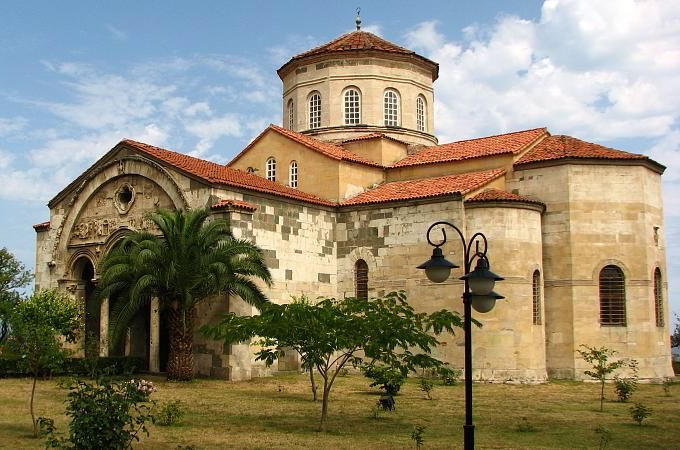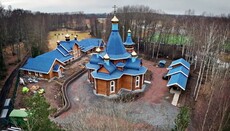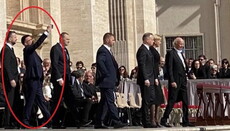Ancient Christian frescoes to be covered in Hagia Sophia at namaz time

The building, regarded as an exemplary piece of Byzantine architecture, located in northeastern Turkey, served as a museum for fifty-two years before being opened to worship again in 2013. The new project plans to continue prior measures taken to conceal the church’s Orthodox Christian frescos from the eyes of Muslims, who, despite their dogmatic opposition to it, have chosen to worship in a Christian temple filled with iconography
As part of the restoration, a shielding system which is used to cover mural paintings will be removed but an electronic system will be placed in front of the walls to cover Byzantine-era Christian paintings at worship times.
The restoration process, which is expected to cost 2 million Turkish Liras, will start sometime this year.
The provincial director of foundations in Trabzon, İsmet Çalık, said the mosque, which was renamed Trabzon Center Mosque after opening for worship, was one of the most touristic places in the province.
“When we push the button, all mural paintings will become opaque … Thus, people will be able to worship without any influence from paintings,” he said.
Çalık also said the mosque would be restored to its original form.
“We aim to keep this mosque open during the restoration process. Closing the mosque to visits [upset us]. So it will partially remain open,” he said, noting how the province’s Sümela Monastery had been closed for restoration.
Hagia Sophia was built in Trabzon during the reign of Manuel I between 1238 and 1263. After Mehmed II conquered the city in 1461, the church was likely converted into a mosque and its frescos were covered in whitewash.
The church functioned as a mosque until 1931. Then it was closed and re-opened in 1935 as a museum by the order of the then secular government of Turkey. Under President Recep Tayyip Erdogan, in 2013, the temple was once again transformed into a mosque under the pressure of Muslim nationalists.
0
0
If you notice an error, select the required text and press Ctrl+Enter or Submit an error to report it to the editors.
Read also

Another Jehovah's Witness who refused mobilization sentenced
28 April 20:43








